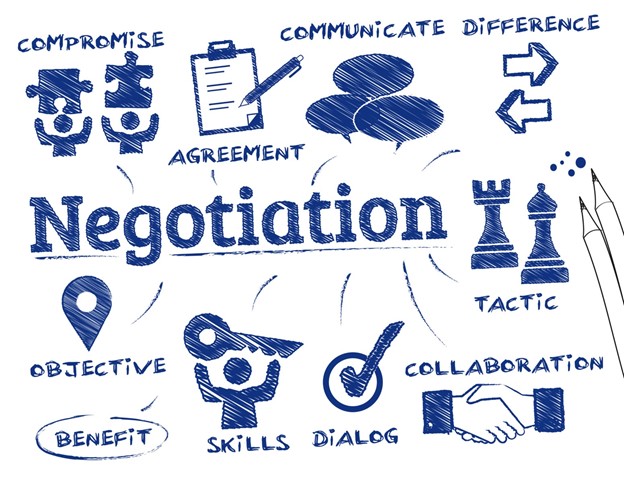Trending News
8 Reasons Every Company Should Use a Media Buying Agency
By: Lisa Montague, Partner/VP of Media
While companies certainly understand the value of media, the value of the person who plans and buys the media is sometimes harder for them to grasp. So much so, that in order to save money, many marketing directors would rather place and run their own advertising than hire a media buying agency.
However, media buying is not as simple as some may think it is — from research and planning to launch and post-analysis, it requires extensive time, proficiency, and experience. Marketing directors are often unaware of this when deciding to act as their own media buyer, and without the necessary know-how, they usually end up biting off more than they can chew. This results in wasted time, ineffective work, and poor outcomes, not to mention a squandered budget.
So, while on the surface it may seem that you’re saving money by choosing a DIY approach, in the long run, you’re actually losing money. In contrast, a media buying agency can offer multiple benefits, notably in the form of substantial cost-savings to maximize your budget. Read on to learn more about this benefit and others, so you can better understand the value media buying agencies bring to their clients.
1. Specialized Knowledge
Flighting, quintile, cost-per-point… do you know what these terms mean and how they fit into a media plan. Probably not – but media buyers do. Media is more complicated than most people think, and buyers have the expertise that comes with understanding these complexities. They also have the experience of working with outlets, so they know the ins-and-outs of various channels as it relates to advertising. And not just traditional channels, such as print and broadcast (which is perplexing enough), but also digital ones as well. Additionally, media buyers make a point to keep their finger on the pulse of new media trends, emerging channels, and the ever-changing behavior of consumers.

2. Valuable Date From Useful Tools and Resources
Media buyers know the right questions to ask about the target audience and market to uncover insights necessary for an effective buy. Most media buyers have access to research tools and resources such as Kantar Media, Nielsen, etc. that pull invaluable data and statistics about media, target demographics and consumer behavior. You may think your target audience engages with a certain outlet or medium, but the success of a campaign (not to mention a budget of hundreds of thousands of dollars) shouldn’t hinge on an assumption or a hunch. Rather, the strategy you choose should be informed by strong research and data, so that you know the media you’re using is successfully reaching your target. Because of these beneficial tools media buyers have at their disposal, they can bring this level of certainty to the campaign.
3. Negotiation Clout So Your Money Goes Further
Even if you consider yourself to be an excellent negotiator, you simply can’t touch the negotiation power that a media buyer has over outlets. That’s because they can leverage the collective budgets of all of their clients to benefit each of their clients. Due to the sheer volume of media an agency places each year, they have much more buying power than an individual advertiser. Additionally, media buyers have longstanding relationships with important media vendors which also helps to receive advantageous deals. This all equates to competitive rates, greater cost-savings, more added value, and premium ad positioning.

4. Oversight From Start to Finish So Your Time is Better Spent
Oftentimes, companies trying to manage their own media do not realize how extensive and time-consuming the process is. There’s more to media buying than just placing the space and sending the creative to the vendor. When done right, the process includes planning that consists of research, strategy, negotiating, etc. and launch/implementation that is comprised of working with media reps on contracts and orders, developing a comprehensive calendar, trafficking the creative, etc. Aside from this, countless hours are also spent overseeing the buy to ensure insertions run correctly, managing make-goods with reps, and reviewing invoices. Additionally, time should also be devoted to monitoring the buy’s overall performance, optimizing, and developing a post-buy analysis.
Marketing directors are extremely busy people who are always being pulled in many different directions, and they don’t have the time to adequately perform these media buying services. Having an actual buyer frees them up to conduct more high-level work, allowing them to perform their job better while their media receives the attention it deserves.
5. An Understanding of the Big Picture
Sometimes companies will try to piecemeal their way to results – arbitrarily running an ad with this outlet and a couple of ads with that outlet. However, this rarely works because there are not any objectives or research tied to the advertising and subsequently there is no real strategy or thought behind these placements, so it doesn’t make an impact in the whole scheme of things.
A media buyer will help you determine objectives for your media that drives back to the goals of your overall campaign. After conducting research, media buyers develop a media mix of print, broadcast, and/or digital that is most optimal for reaching the target audience with enough frequency to make an impact (while also staying within the budget).
6. An Eye for Small but Important Details
Even with a grasp of the big picture, media buyers also keep their eye on the small details – such as timing and placement. These small nuances are sometimes overlooked by advertisers, but they can have a major impact on a campaign. Being in the right place at the right time is key to catching your target audience – for example, your media buyer will know the best daypart or print placement most likely to get you noticed by your ideal prospect.
7. A Point of Contact for Persistent Sales Reps
Marketing Directors usually avoid sales calls from relentless vendors because they don’t have the time to discuss or review new opportunities. A media buyer can take this off your plate by becoming the point of contact for media sales reps and streamlining communication by assessing the opportunity and bringing it to your attention if it’s viable and cost-effective.
8. Alleviation of Verification, Reconciliations, and Accounting Headaches
Media buyers continuously monitor ads to ensure they ran as contracted and reached the number of impressions promised. If they didn’t, media buyers will negotiate make-goods to make up for the difference. Additionally, media buying firms typically have an accounting department that is accustomed to working with the media to take care of invoicing and to make sure that budgets stay on track.

Working with a media buyer will give your campaigns the expertise and skillset needed to move the needle. Contact us today to discuss working with a media buyer and the benefits it can bring to your bottom line.